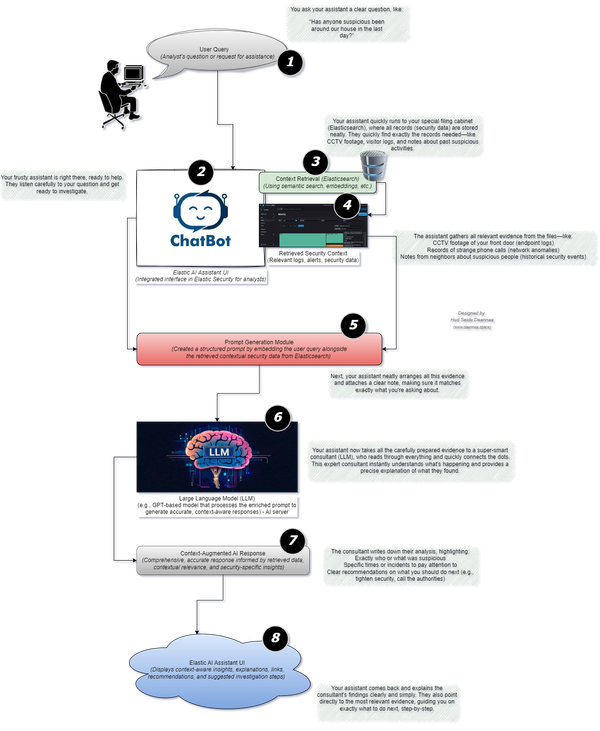Man vs. Machine: Who's Winning the Battle of Brain Power?
Who wins in the battle of brainpower: humans or AI? Explore the debate of man vs. machine, the future of the victor, and the possible fate of the loser. Join the conversation and share your thoughts!

In today's rapidly evolving world, the debate between man and machine has never been more relevant. As artificial intelligence (AI) continues to advance, it begs the question: Can machines outperform the human brain in exercising cognitive functions? Let’s explore this through a series of points that highlight the strengths and limitations of both sides.
Round 1: Learning and Adapting
Human Perspective:
Humans have an innate ability to learn from experiences, adapt to new situations, and apply creativity to solve problems. The human brain is capable of abstract thinking, understanding complex emotions, and making decisions based on ethical and moral considerations. This depth of understanding and adaptability gives humans an edge in environments where nuance and empathy are required .
Machine Perspective:
AI, on the other hand, excels at processing vast amounts of data at speeds incomprehensible to humans. Machine learning algorithms can identify patterns, make predictions, and adapt to new information, often surpassing human capabilities in specific tasks. AI’s ability to continuously learn and improve from data allows it to optimize processes, making it incredibly efficient in areas like language translation, personalized learning, and strategic games like chess or Go .
Round 2: Creativity and Innovation
Human Perspective:
Creativity is often seen as a uniquely human trait. The ability to think outside the box, create art, write stories, and innovate new ideas is something that humans have perfected over centuries. This creative spark is driven by emotions, experiences, and the desire to express oneself, which AI has yet to fully replicate. Humans bring a subjective perspective to creativity that is deeply rooted in culture, history, and personal experiences .
Machine Perspective:
AI is increasingly being used in creative fields, from generating music and art to writing articles and designing products. While AI-generated content can be impressive, it often lacks the emotional depth and originality that comes from human creativity. However, AI’s ability to quickly analyze trends, generate new combinations, and experiment with novel ideas at scale provides a unique advantage, especially in areas like design optimization or content creation where speed and variation are key .
Round 3: Problem-Solving and Decision-Making
Human Perspective:
Humans excel in problem-solving when situations require intuition, ethical considerations, and long-term thinking. The human brain can weigh complex variables, consider potential outcomes, and make decisions based on incomplete information. This ability to navigate ambiguity and make judgment calls is crucial in leadership, negotiations, and scenarios where the human touch is indispensable .
Machine Perspective:
AI’s strength lies in its ability to analyze data-driven scenarios with precision and consistency. Machines can process vast datasets, identify optimal solutions, and execute decisions without the biases that often cloud human judgment. In environments where data is king, such as finance, logistics, or cybersecurity, AI can make decisions faster and more accurately than humans, reducing errors and optimizing outcomes .
Round 4: Social Interaction and Empathy
Human Perspective:
Humans are inherently social beings, with the ability to empathize, understand complex emotions, and build relationships. This emotional intelligence is crucial in areas like counseling, customer service, and team collaboration. The ability to read between the lines, pick up on social cues, and offer support in a compassionate manner is something that machines, with their logical frameworks, struggle to replicate .
Machine Perspective:
AI-driven chatbots and virtual assistants are increasingly being used to handle social interactions, from customer service to mental health support. While these machines can provide consistent, 24/7 service and even simulate empathy to some extent, they often lack the depth of understanding and genuine connection that humans bring to the table. However, as AI continues to evolve, its ability to understand and respond to human emotions may improve, potentially narrowing this gap .
The Future: Victor and Vanquished?
As this battle rages on, the future of both man and machine remains a topic of intense speculation.
If Machines Triumph:
Should AI eventually surpass human capabilities in every domain, the implications could be profound. The victor, AI, could dominate industries, leading to unprecedented efficiency, innovation, and perhaps even the creation of new forms of intelligence. However, the fate of humanity in this scenario is uncertain. Will humans find themselves relegated to a secondary role, becoming mere observers in a world driven by machine logic and efficiency? Could we face an existential crisis as our traditional roles and identities are challenged by the rise of superior machine intelligence?
If Humans Prevail:
On the other hand, if humans maintain their edge, particularly in areas that require emotional intelligence, creativity, and ethical judgment, AI might become a powerful tool rather than a rival. In this future, humans would harness the full potential of AI to enhance their capabilities, while still retaining control over decision-making processes. The machine would be a loyal companion, augmenting our strengths without overshadowing them. However, this scenario also raises questions: Can humanity evolve fast enough to keep pace with its own creations? Will the collaboration between man and machine truly be symbiotic, or will it lead to new forms of dependency and societal challenges?
The Verdict: Who Wins?
The debate between man and machine is far from settled. Both have their unique strengths and weaknesses, and the question of who is superior may ultimately depend on the context in which they are applied. As AI continues to evolve, it will likely take on more roles traditionally held by humans, but the human brain’s adaptability, creativity, and emotional intelligence will continue to play a critical role in areas that require a personal touch.
So, who wins in this battle of brainpower? The answer may lie in collaboration rather than competition. How do you see the future shaping up? Will it be a world led by machines, or will humans maintain their place at the helm? Share your thoughts and join the conversation.
References
-
Long and Short Essay on Man vs. Machine in English for Children. (n.d.). Infinity Learn. Retrieved from Infinity Learn
-
Battle for Copywriting: Man vs Machine. (2021, April 28). Suncoast Web Solutions. Retrieved from Suncoast Web Solutions
-
Copyediting: Man vs. Machine. (2010, May 4). Signal v. Noise. Retrieved from Signal v. Noise
-
Am I a man or a machine? Science writing at its best – and worst. (2012, March 21). The Guardian. Retrieved from The Guardian
-
Man vs Machine: The Importance of Human Capital. (2019, August 12). LinkedIn. Retrieved from LinkedIn





